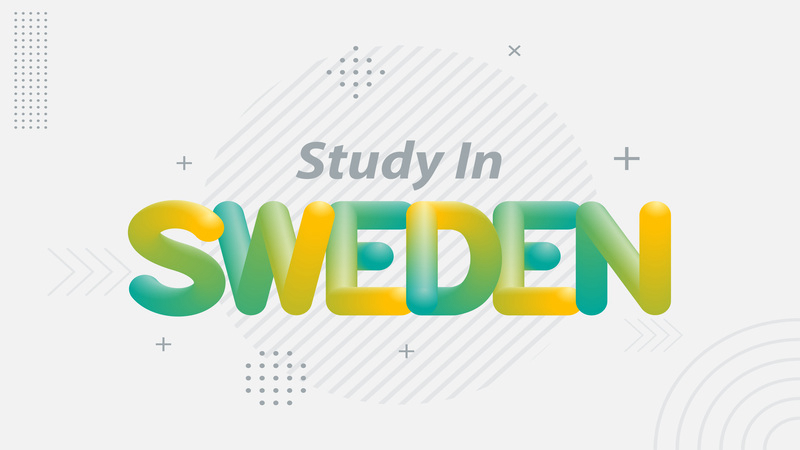Studying abroad can yield significant academic success, diverse cultural experiences, and personal growth. Among the many study-abroad destinations, Sweden is notable for its consistent appeal to international students.
Sweden boasts an innovative, flexible, and high-quality educational system. Students pursuing degrees have the opportunity to blend academic learning with practical experience, which is advantageous when entering the job market. Additionally, internships with Swedish companies offer genuine workplace exposure.
Reasons to Study in Sweden
1. Excellence in Education: Sweden is renowned for its high academic standards, emphasizing critical thinking, creativity, and research. Swedish universities provide an intellectually stimulating environment, as evidenced by their strong performance in global rankings.
2. Cultural Integration: Sweden offers a welcoming and inclusive atmosphere for international students, with minimal social barriers. It is considered one of the safest countries for both residents and visitors.
3. English-Taught Programs: The prevalence of English as the primary language of instruction in Swedish universities is a major draw for international students, facilitating full participation in classes, discussions, and collaborative projects.
4. High Quality of Life: Sweden ensures a high standard of living for international students, supported by its commitment to sustainability, equality, and social welfare.
5. Hub of Innovation: Sweden is a global leader in innovation, with substantial investments in research and development. It is a prime destination for those interested in engineering and technology.
Sweden Educational Structure
Sweden’s education system includes mandatory schooling from elementary to junior high school, divided into:
- Förskoleklass (preschool year or Year 0)
- Lågstadiet (Years 1–3)
- Mellanstadiet (Years 4–6)
- Högstadiet (Years 7–9)
Post-compulsory education is optional, but many students continue to upper secondary education and higher studies. Sweden’s educational system integrates academic rigor with practical experience.
Academic Year and Credit System
The academic year in Sweden is divided into two 20-week semesters: the spring semester from mid-January to early June, and the autumn semester from early September to mid-January.
Degrees in Sweden are based on a credit system, adhering to the ECTS (European Credit Transfer and Accumulation System). Full-time students earn 30 ECTS credits per semester. To obtain a residence permit, international students must be enrolled in a full-time program or accumulate 30 ECTS credits per semester.
To achieve a bachelor’s degree, students must complete 180 ECTS credits. For a one-year master’s degree, 60 ECTS credits are required, while a two-year master’s degree requires 120 ECTS credits.

Top Universities in Sweden
Sweden's higher education system is characterized by its diversity, featuring approximately 18 universities and 12 university colleges. The primary distinction between the two is that universities are generally authorized to award doctoral degrees, while university colleges can do so only if granted permission in specific subject areas. Both types of institutions typically offer bachelor’s and master’s degrees. Sweden is known for providing specialized, in-depth education. Here are ten of the top Swedish universities to consider:
1. Karolinska Institutet
Widely recognized as one of the world's leading medical research colleges, Karolinska Institutet consistently ranks highly in global medical studies, often placing among the top institutions for international students.
2. Lund University
Lund University is renowned for its diverse student body, with attendees from over 130 countries. It offers a broad range of highly regarded programs in fields such as engineering, humanities, economics, and the arts.
3. Stockholm University
This university excels in humanities and creative arts, offering programs in psychology, history, social sciences, art, law, and more. It also hosts an annual Sustainability Forum, attracting those interested in environmental sciences.
4. University of Gothenburg
As the third-oldest university in Sweden, the University of Gothenburg offers extensive academic opportunities across its eight faculties and 38 departments, making it a top choice for international students seeking employment opportunities abroad.
5. KTH Royal Institute of Technology
KTH is the largest technical university in Sweden, drawing students from around the world. It offers a vast array of exchange programs and has global partnerships, making it a hub for international collaboration.
6. Uppsala University
Uppsala University offers a wide range of programs in humanities, social sciences, natural sciences, medicine, pharmacy, and technology, along with clinical training at the University Hospital. The university provides a stimulating learning environment and strong post-graduation employment prospects.
7. Chalmers University of Technology
Known for its innovation and research, Chalmers University of Technology offers degrees in science, technology, and natural sciences. It leads the EU's largest research project, the Graphene Flagship, further enhancing its reputation.
8. Umea University
Umea University is a vibrant institution with a diverse student body, offering nearly 40 programs in English. Its courses span medicine, humanities, arts, social sciences, technology, and educational sciences.
Admission Requirements
To study at a Swedish university, certain entry requirements must be met. Here's a general overview:
Required Documents:
Applicants must submit officially issued documents with valid stamps, seals, and signatures. Some documents may need to be translated into English.
General Entry Requirements:
Applicants must have completed upper-secondary education and provide their final transcripts. Proof of English proficiency equivalent to Swedish upper-secondary English 6 is also required. Additionally, students must meet specific mathematics requirements, equivalent to Swedish courses Mathematics 1a, 1b, or 1c.
Specific Entry Requirements:
Some programs may require the applicant to have studied certain subjects at a particular level. Other requirements may include motivation letters, letters of recommendation, and CVs. A valid passport or ID is also necessary.
For courses taught in Swedish, proof of Swedish language proficiency is required. However, this is not needed for programs taught in English, where only proof of English proficiency is necessary.

Application Process
Once you’ve identified the best program for you, applications are submitted through one of two main portals:
- www.universityadmissions.se for English-taught programs.
- www.antagning.se for Swedish-taught programs.
These platforms provide comprehensive information on universities, programs, admissions, scholarships, and funding, along with access to webinars and online university fairs.
Deadlines and Visa Applications
The application deadline for the autumn semester in Sweden is typically mid-January, and for the spring semester, it is mid-August. It’s important to verify specific deadlines with the university you’re applying to. After receiving your acceptance, apply for your student visa or residence permit as early as possible, as processing times can be lengthy.
Visa Information
Did you know that Sweden consistently ranks high in the World Happiness Index? In the 2024 World Happiness Report, Sweden secured the fourth position, which helps explain why so many international students are drawn to its educational opportunities. When planning your academic journey, it’s important to understand the main types of study visas available for Sweden.
There are two primary types of Sweden study visas, each suited for different durations and purposes of stay. Knowing the details of these visas is crucial for selecting the right one for your studies in Sweden. Below are the specifics of these visas, including their duration and application fees:
Residence Permit for Studies (Long-term Visa):
Duration: More than three months
Short-term Visa (Schengen Visa):
Duration: Less than three months
A residence permit is required for non-EU/EEA students who plan to study in Sweden for more than three months. This permit ensures that you are legally recognized in the country and grants access to student services and protections. The permit is typically valid for up to two years at most higher education institutions, including Lund University, Uppsala University, and Karolinska Institute.
Understanding the Sweden student visa requirements is the first step toward your study experience in Sweden. Here are the prerequisites for applying for a Sweden student visa:
- Acceptance Letter: You need an official acceptance letter from a Swedish university or higher education institution confirming your admission to a full-time accredited program.
- Financial Requirements: You must demonstrate that you have sufficient funds to support yourself during your stay in Sweden. Currently, this amount is around SEK 10,300 per month for the duration of your stay.
- Health Insurance: If your stay in Sweden is less than a year, you’ll need comprehensive health insurance valid for your entire stay to acquire your student visa.
- Valid Passport: Your passport must be valid for at least three months beyond the end of your planned stay in Sweden and must have been issued within the last ten years.
- Completed Visa Application Form: This form can be filled out online but must be printed and signed before submission.
- Photographs: You will need two recent passport-sized photographs.
- Proof of Accommodation: You must provide evidence of your living arrangements in Sweden, such as a rental agreement.
- Previous Academic Records: Copies of your previous academic certificates and transcripts are required.

Processing times for a residence permit can vary, typically taking 6 to 12 weeks. To avoid delays, it’s advisable to apply as soon as you receive your acceptance letter. Depending on the volume of applications, the process could take several weeks or even months.
Tuition Fees and Living Costs
As an international student in Sweden, your monthly living expenses will generally range from $765 to $1,292. Here’s a breakdown of potential costs:
- Accommodation: Renting an apartment or living in a dormitory can cost between $290 and $865 per month.
- Transport: Depending on how often and where you travel, expect to spend between $70 and $100 per month on transportation.
- Food and Groceries: Monthly expenses for food and groceries typically range from $190 to $280.
- Other Costs: It's also important to budget for personal expenses, such as entertainment, clothing, and hobbies, which can amount to about $150 to $250 per month.
Sweden offers a variety of scholarships for international students across undergraduate, master's, and PhD levels. These scholarships can cover tuition fees, living expenses, or a combination of both.
Key providers of scholarships include:
The Swedish Institute (SI): Offers government-funded scholarships for international students and researchers.
Swedish Universities: Provide a range of scholarships with varying benefits and eligibility criteria.
Other Organizations: Including associations, foundations, and companies, offer additional scholarship opportunities.
Specific Scholarship Programs
Here are some examples of scholarships offered by specific Swedish universities:
Chalmers University: IPOET Scholarships covering 75% of tuition fees for master's students from non-EU/EEA countries.
Halmstad University: Scholarships covering 25% or 50% of tuition fees for master's students from non-EU/EEA countries and Switzerland.
Linköping University: International Scholarships offering up to 75% tuition fee reduction for undergraduate and graduate students from non-EU/EEA countries and Switzerland.
Uppsala University: Global Scholarships covering full tuition fees for master's students from non-EU/EEA countries and Switzerland.
Dalarna University: Scholarships covering up to 50% of tuition fees for undergraduate and graduate students from outside the EU/EEA and Switzerland.
Umeå University: Scholarships covering up to 100% of tuition fees for master's students from outside the EU/EEA and Switzerland.
KTH Royal Institute of Technology: Tuition fee waivers for master's students from non-EU/EEA/EFTA countries.
Note: Eligibility criteria, application processes, and benefits vary significantly between different scholarships. It's essential to research individual programs thoroughly to find the best fit for your academic goals and financial needs.
Conclusion
In conclusion, Sweden's education system offers an ideal combination of intellectual rigor and character development. The country's dedication to academic freedom and innovative teaching methods creates a strong foundation for intellectual growth. If you're interested in pursuing education in Sweden and aiming to build a successful career, you're in luck. Get ready and connect with ApplyMoon, a study abroad consultancy that will guide you through the entire process seamlessly.
